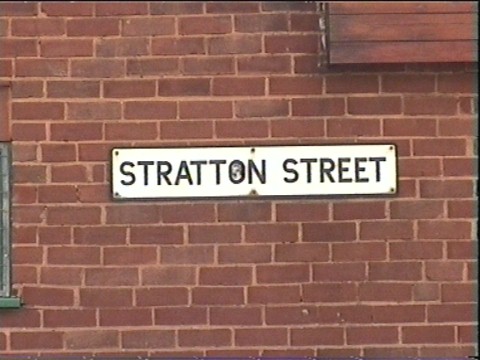

The following text was taken from a handwritten document found in a cupboard in the church. The author and the date it was written is unknown but it explains the reason for the location of the church and how it came to be built.
In the then dense population of Springfields the Primitive Methodist Chapel in Culwell Street, served the people well; until the building was condemned as not being safe for use.
So the Society had to move.
A site on the Cannock Road at the corner of Springfield
Road was desired; but it was too costly.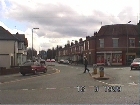 So the site at Stratton Street was secured. Services ceased in Culwell
Street, between 1904 & 1905. For twelve months the Sunday Evening Services
were held in the Front Rooms of several members of the Church.
So the site at Stratton Street was secured. Services ceased in Culwell
Street, between 1904 & 1905. For twelve months the Sunday Evening Services
were held in the Front Rooms of several members of the Church.
The main concern was for the children; most of them went, temporarily to the Sunday Schools of the neighbour hood. Though the Sunday School anniversary was held on the site of the new Church, - in the open air.
The Church was one of the first buildings erected
in Stratton Street. 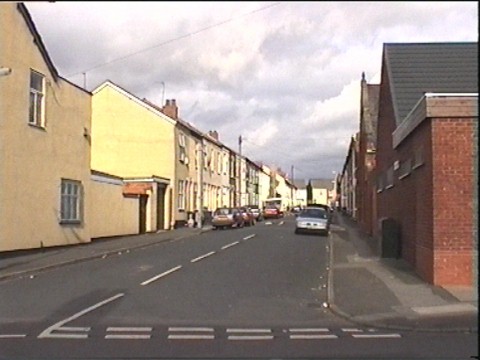 The
Trustees included Messrs. Castle, Edwards, Gardner, Manning, Mulligan,
Robins, Shore, Wagstaff: as far as can be remembered. Soon after the opening
of the Church in January 1906 the children of the district came into the
Sunday School, and it was not long before there were two hundred in attendance.
The
Trustees included Messrs. Castle, Edwards, Gardner, Manning, Mulligan,
Robins, Shore, Wagstaff: as far as can be remembered. Soon after the opening
of the Church in January 1906 the children of the district came into the
Sunday School, and it was not long before there were two hundred in attendance.
Mr. W. Gardner was a devoted Superintendent for well on thirty years.
Then the different activities began to develop. A "Band of Hope" on Thursdays, nearly as large as the Sunday School; very ably looked after by Mr. W, Share; saved from "Drink" himself he earnestly sought for others to be saved.
The a Men's Morning School every Sunday morning from 8-00 a.m. to 9-00 a.m., organised by Mr. T. Wilkes of Nine Elms Lane. Connected with the above was a Male Voice Choir, that was very active all over the Midlands, taking part in Competitions and Rallys. Mr. Jones winning prizes for Tenor Solos. Mr. Barber the conductor.
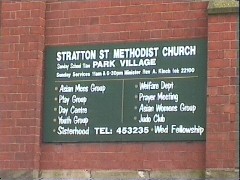
The church organist and Choir Master was Mr. Mulligan. As the years past the Christian Endeavour; with a good active membership, came into being.
A vestry was very much needed: efforts were made, and the vestry was added.
With the vestry came the possibility of separating the very young children, at Lesson time, in the Sunday School session, these became known as Miss Bates' Class; which eventually became the Primary; now so efficiently fulfillling its functions under the care of Miss J. Wagstaff.
Stratton Street was born in Song, With over one hundred children on the platform and an orchestra of eight or nine instruments, the Sunday School Anniversary became a notable event; bringing in the people to the actual overflowing of the Church.
Open air meetings before the Evening Service on Sundays; an annual "Camp Meeting" in the open air, let the people know that there was a live Church in their midst.
Finance was a monumental problem.
Many arguments at Leaders' and Trustees' Meetings, Spirited meetings reflected the enthusiasm of the workers.
A change from Gas lighting to "Electric".
The High Pressure Steam Pipe system failing, two stoves for heating were installed.
Then the present system of Hot Water Pipes.
From Easter to Whitsuntide for many yeas, each Sunday afternoon there was a Service of Song, or Choral Items, given by choirs of the district.
Good Friday Tea every year.
With the changing of conditions in the country, the passing of the Band of Hopes, and other things the 1st. Wolverhampton Boys' Life Brigade was formed, Captain, Mr. J. Hughes; the Company became the 14th. Wolverhampton Coy. of B.B. when the B.L.B. was incorporated in the B.B. nationally.
The the 1st. Wolverhampton Girls' Life Brigade Company, which is still going strong.
The closing of Cross Street Church, September, 1937, brought most of the members from there to Stratton Street, and with some of the funds they brought with them, the entrance to the church was moved from the east to the west, a suitable Porch being erected.
The spirit of Song continued under the influence of Mrs. Bishop.
And so came the need for more accomodation, and the Hall is the result.
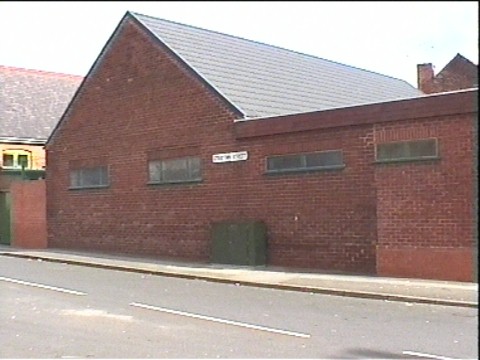
The question might be asked - as was asked by the Rev. Leyland, when he was minister here. "Why was not the Church built on the corner site?" Well! the 'vision' was of larger Church on that part, the present building being actually the School Church.
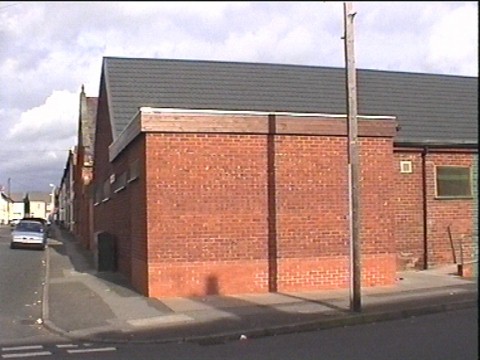 |
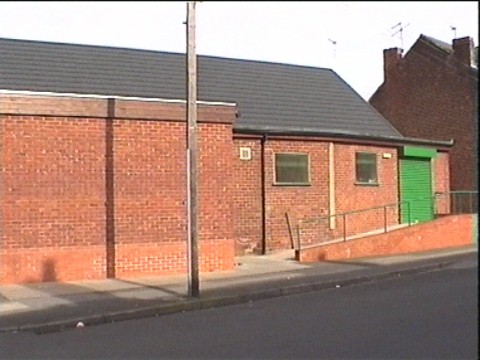 |
His comment - in sarcasm may be - "Our Fathers' were highminded men".
They were - and may the workers have vision too.
